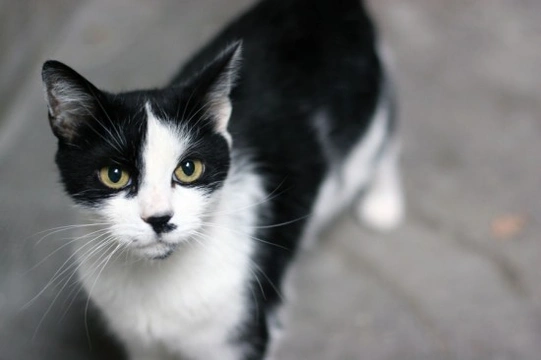
Living with FIV (Feline Immunodeficiency Virus)
FIV affects the immune system (the white blood cells) of the cat, causing a gradual decline in their ability to fight off any infection, and there is currently no vaccine available against it in the UK. The immune system also monitors the body for cancerous cells, and FIV is more common than people realise, affecting about 6% of the healthy UK cat population. It's transmitted through saliva, usually through a cat bite, and is most likely to be contracted by cats that go out a lot, as well as by feral and farm cats, especially if they become involved in fights with affected animals. Although FIV and the human HIV viruses are very similar, they are species specific, and so there is no risk of infection for people (or other pets) coming into contact with an FIV-infected cat. The clinical signs of FIV itself are quite non-specific, although during the first phase (usually between 2-4 months after initial infection), there may be some short-term secondary illnesses such as enlarged lymph nodes or a very high temperature and general malaise. Most cats will recover from this and during the next phase, which could last for several years, they will appear to be perfectly healthy. However, a third phase will eventually evolve (and the time will vary from cat to cat) when other clinical signs will emerge which could include lack of appetite, weight loss, gingivitis, diarrhoea, skin infections, conjunctivitis, and almost certainly anaemia. Any cat with anaemia will normally be tested for FIV, and the only way of confirming that a cat has got FIV is by means of clinical tests to detect the level of antibodies. These can be carried out by your Vet, although the results are not always 100% accurate and your Vet may want to run some more detailed tests, which will need to be sent away to a laboratory for confirmation. Owners of pedigree stud cats may also ask you to have your female cat tested immediately prior to going to stud, as the virus is transmitted via saliva. If you have a cat that has tested positive for FIV, you will need to manage the situation very carefully. If this is your only cat, the situation won't be quite so difficult, although if your cat is used to going out, it would be a responsible action to keep him in (or at least, only to let him out when you are available to supervise him) so that he does not infect other cats in the neighbourhood. Things are not quite so straightforward if you have other cats. Although FIV is not thought to be transferable by everyday social contact with other cats, it is passed on via saliva, and could be transmitted through sharing food and water bowls, or even by mutual grooming. It would be ideal if maybe you could find another home for your infected cat with a trusted friend or family member, where they would be the only cat, although this is not always possible and you may prefer to manage the situation yourself anyway. Maybe you could isolate the affected cat and have them at least eating and drinking separately to your other cats, although there would still be the small risk of passing on the virus by your infected cat grooming one of his housemates if they spend some time together. If the FIV-positive cat is an entire female, it is essential that you have her spayed. Not only could she abort her kittens, if she were to go full-term, there is a 30% chance that her kittens would be also be FIV-positive, although they cannot be tested until they are at least 6 months old as FIV will be masked by their maternally-derived antibodies. You should not allow any kittens from an FIV-positive mother to go to a new home until they have been fully tested for the virus. You will be able to help your infected cat by giving him good quality food together with regular worming, preventative flea treatment and regular health checks by your Vet. This is particularly important now as your cat will be more vulnerable to the effects of worm or flea infestation because of the reduced efficiency of the immune system. As with other long-term health problems, the costs of veterinary treatment should be met by your pet insurance company so long as you took out the insurance policy before the problem started, as it will not cover a pre-existing condition. There are two schools of thought about giving booster vaccinations to an FIV-positive cat, and you will need to discuss the implications with your Vet. Giving a vaccine stimulates the immune system and could possibly lead to acceleration of FIV by affecting the balance between immune system and virus. However, FIV-positive cats are more susceptible to infection generally, and may pick up cat flu and other secondary infections if they are not fully protected, but your Vet will be able to advise you, as he will be familiar with your own particular situation. There is no known treatment for FIV itself, although many of the secondary infections can be treated successfully with modern veterinary medicines, and your cat may live quite happily for several years despite being FIV-positive. In terms of preventing FIV, indoor cats are unlikely to come into contact with the virus, and you may want to think about whether you could keep your cats inside, or maybe only let them out in the garden when you are there to supervise them - and certainly think about keeping them in at night when they are more likely to become involved in a fight. Or maybe your garden lends itself to effective fencing to keep your cat in and others out, or even to adding a small wire-covered run to the back or your house so that your cats can still enjoy the fresh air.



